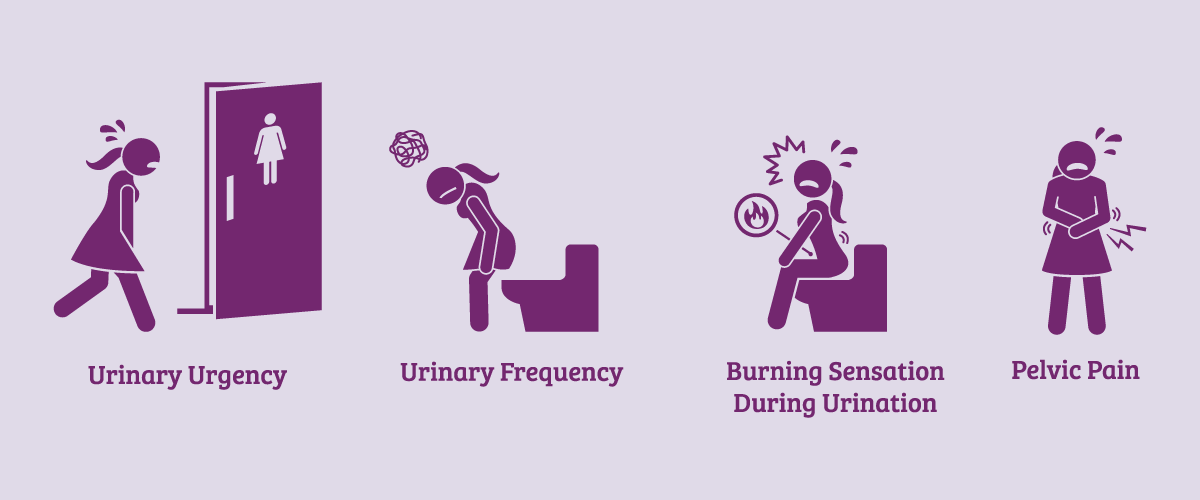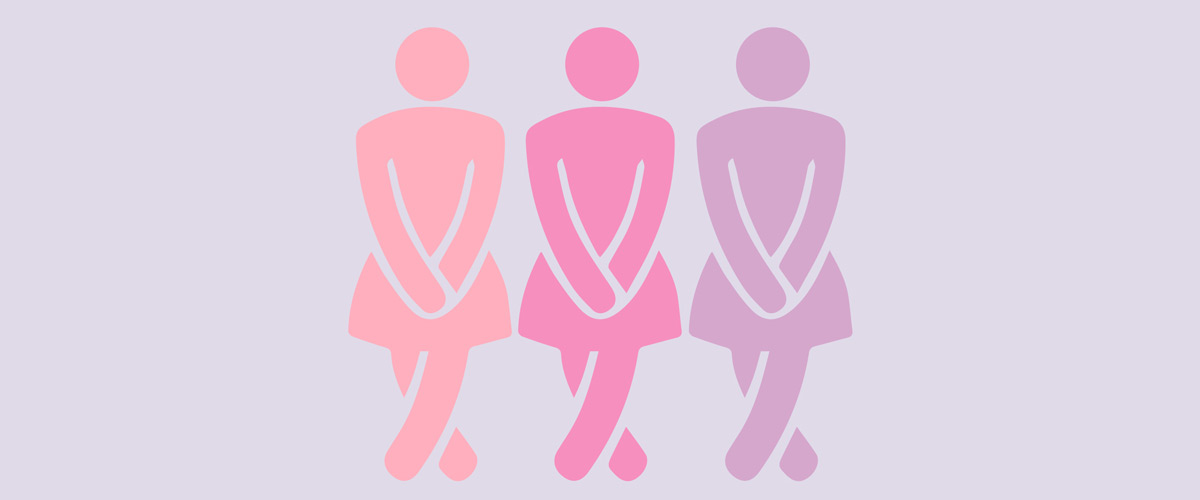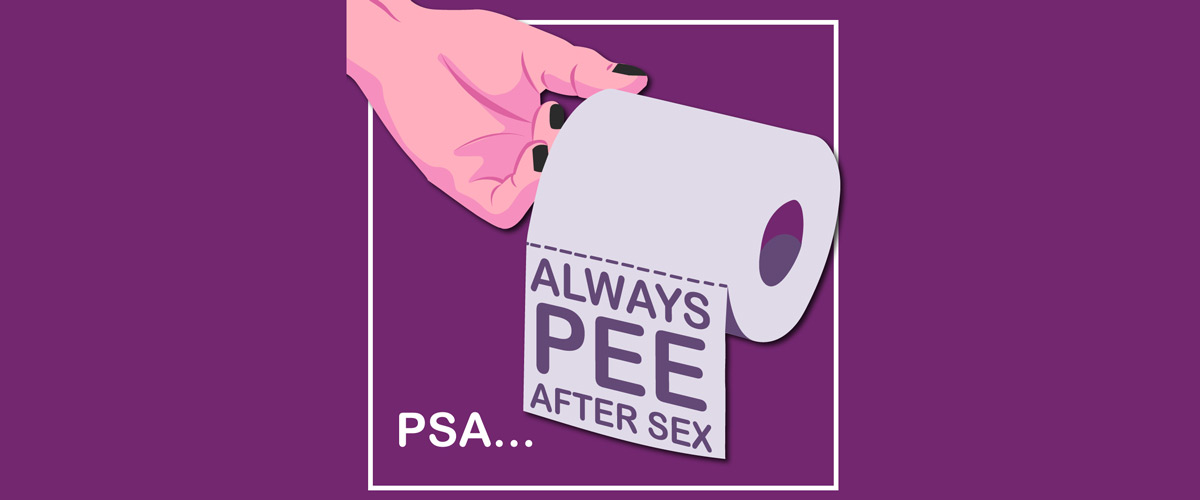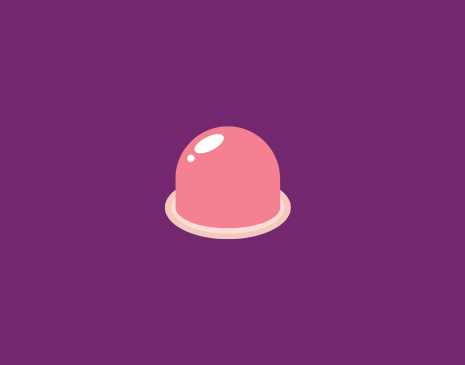Can drinking cranberry juice prevent or treat urinary tract infections?
If a minor slip of luck has caused you to contract a urinary tract infection, chances are that someone in your life has suggested cranberry juice, cranberry supplements, or cranberry capsules to relieve UTI symptoms and prevent UTIs in the future.
Let’s be honest. When you’re in the depths of experiencing constant and uncontrollable urges to pee and excruciating burning sensations when peeing or having sex (aka the most common symptoms of a UTI), you’d be willing to try anything to fast-track the recovery of a urinary tract infection. But is there any truth to cranberry products effectively treating UTIs or preventing urinary tract infections in the first place?
Should we coin ‘cranberry treatment’ as the replacement for antibiotics when treating this gnarly infection of the urinary system?
First, what is a urinary tract infection?
Urinary tract infections are self-explanatory in that they’re an infection in any part of the urinary system. That includes your urethra, bladder, kidneys, and ureters. The most commonly affected parts of the urinary system are the lower urinary tract – the bladder and the urethra.
Who is at risk of urinary tract infections?
Urinary tract infections (UTIs) are most common in women and can affect anyone, but certain factors increase the risk of developing a UTI. These risk factors include:
- Being female: Women have a shorter urethra, which allows bacteria to reach the bladder more easily.
- Sexual activity: Having sexual intercourse can increase the risk of bacteria entering the urethra.
- Hormonal changes: Menopause and reduced estrogen levels can cause changes to the urinary tract that increase the risk of UTIs.
- Use of certain devices: Using a diaphragm for birth control or a urinary catheter increases the risk of UTIs.
- Previous UTIs: Women who have had a UTI in the past are more likely to develop another one.
- Structural problems: Some women may have structural abnormalities in their urinary tract that increase the risk of UTIs.
What are the symptoms of urinary tract infections?
Many women are familiar with the hallmark UTI symptoms of a strong and constant urge to pee (even when you don’t actually need to pee), burning sensations in the vaginal area when urinating or engaging in sexual activity, cloudy urine, and pelvic pain.
Depending on what part of the urinary tract is affected by infection, symptoms can differ. A UTI that affects the bladder may cause symptoms of increased pelvic pressure, abdominal discomfort, frequent urination, painful urination, or blood in the urine. A UTI that affects the kidneys may cause symptoms of the upper back and side pain (that may feel like you have a stitch), fever, chills, trembling, nausea, or vomiting.

What causes urinary tract infections?
Urinary tract infections are the result of bacteria entering the urinary tract through the urethra. Once bacteria have trespassed into the urethra, it basically gains an all-access pass to the bladder and kidneys, causing further issues and UTI symptoms.
Women have a higher risk of contracting UTIs in comparison to men. The reason is purely anatomical. Women have a shorter distance between their urethra and anus, which increases a woman’s risk of contracting UTIs from faecal bacteria.
How to treat urinary tract infections?
Typically, oral antibiotics are the quickest, most effective way to treat UTIs.
Antibiotics work by killing the bacteria that cause the infection. With an antibiotic prescription, symptoms should clear up within a few days, but make sure to always complete the full course prescribed by your doctor to reduce the risk of developing antibiotic resistance.
Antibiotic resistance is a downside of antibiotic use, particularly for women who experience recurrent UTIs, where overuse can cause an inefficacy of the medication and difficulty in treating future infections.
In mild cases of urinary tract infections, symptoms can resolve without medical intervention. So, avoiding a course of antibiotics may be beneficial for many women. Your doctor will be your best source of advice on the best UTI treatment for you.

Now, on to the cranberries
Just to be clear, when referring to cranberry products, we’re talking about:
- Unsweetened cranberry juice (unsweetened cranberry juice because sugar isn’t good for an infection)
- Cranberry juice capsules
- Cranberry extract
- Cranberry supplements
- Fresh whole-fruit cranberries
- Cranberry powders
We’d even go as far as to suggest a cranberry juice cocktail if science backs up the claims. As for the Irish rock band – if blasting The Cranberries takes your mind off your UTI symptoms, if only momentarily, we totally support that (we just can’t back it up with science).
So, can drinking cranberry juice, taking a cranberry supplement, or popping a daily cranberry capsule be useful in treating and preventing urinary tract infections?
Cranberry products have been widely used in treating and preventing urinary tract infections for decades. The theory behind the method is that cranberries contain a substance that can prevent bacterial adhesion on the walls of the bladder. This may help prevent bladder infections and urinary tract infections from developing. Cranberries also have antibacterial properties, which may help undo the damage caused by unwanted bacteria in urinary tract infections (UTIs).
What does the research tell us about cranberry products for UTI treatment and prevention?
The results of clinical studies on cranberry products for UTI treatment and prevention are mixed. Some research suggests that cranberry products, like cranberry juice and cranberry supplements, may reduce the risk of contracting urinary tract infections in some populations. While other research suggests no real benefit in cranberry juice consumption for UTI prevention.
The mixed results may be the by-product of inconsistencies in the type of cranberry products (juice, tablet, extract, or powder), dosage, and amount of cranberry proanthocyanins (a class of polyphenols) in the products used for testing.
The strongest evidence for using cranberries relates to the prevention of UTIs among women with recurrent UTIs.

Let’s look at some of the more promising clinical trials
There have been several clinical trials that have reported promising results for the use of cranberry products in the prevention of UTIs. Some examples include:
- A systematic review of 12 randomized controlled trials found that daily consumption of cranberry products significantly reduced the incidence of UTIs in women with a history of recurrent UTIs¹.
- A randomized controlled trial involving nursing home residents found that daily consumption of a cranberry extract supplement significantly reduced the incidence of UTIs compared to a placebo².
- A randomized controlled trial involving women with a history of UTIs found that daily consumption of cranberry juice significantly reduced the risk of UTI recurrence compared to a placebo juice³.
Now some of the less promising clinical trials
Not all clinical trials have found a significant benefit of cranberry products for preventing UTIs. Some examples of clinical trials that have reported less promising results include:
- A randomised controlled trial involving young women with a history of UTIs found that daily consumption of cranberry juice did not significantly reduce the incidence of UTIs compared to a placebo juice⁴.
- A double-blind, placebo-controlled trial involving women with recurrent UTIs found that daily consumption of cranberry capsules did not significantly reduce the risk of UTI recurrence compared to a placebo⁵.
- A randomised controlled trial involving elderly women residing in long-term care facilities found that daily consumption of cranberry capsules did not significantly reduce the incidence of UTIs compared to a placebo⁶.
It is important to consider the limitations and potential sources of bias in individual studies and to interpret the results in the context of the overall body of evidence on the topic. The results of clinical trials on cranberry products for UTI prevention can be variable, and more research is needed to determine the specific populations that may benefit from cranberry consumption and the optimal dose and form of cranberry products for UTI prevention.

Other ways to prevent UTIs
Urinary tract infections are one of those painfully annoying health conditions that can appear despite you trying your best to avoid them. Like most health conditions, UTI prevention isn’t guaranteed, but there are some ways to boost your urinary tract health and minimise your risk of letting bacteria cause an infection in your urinary system.
Stay hydrated
The power of water goes a long way in helping to reduce the risk of contracting a UTI. Water consumption dilutes and adds volume to your urine, prompting you to urinate more often. When you’re visiting the loo more often, your body naturally flushes out UTI-causing bacteria.
How much water should you drink? Some studies suggest drinking 6-8 cups (1.5-2 litres) of water per day to protect against UTI recurrence in women.
Avoid certain foods and beverages
Diets high in fizzy drinks, coffee, alcohol, artificially sweetened drinks, and animal proteins may increase UTI risk and worsen the severity of symptoms.
Give probiotics a go
Probiotics are considered the good bacteria of the gut microbiome, and they naturally occur in certain foods like fermented vegetables (kimchi and sauerkraut) and live-culture yoghurt.
If fermented foods don’t whet your appetite, you can also find probiotics in tablet and powder form at your local pharmacy.
Wipe front to back
Wiping front to back reduces the risk of spreading bacteria from your back end to your vaginal canal. A simple sanitary practice that can prevent UTIs from ruining your day.
Don’t hold your pee
When visiting the restroom, allow a free and full release of your bladder to avoid bacteria build-up and bacterial adhesion.
Pee immediately after sex
Sexual penetration makes it easier for bacteria to enter the urinary tract, and what goes in doesn’t necessarily come back out. Although it may seem like a sexual buzzkill, peeing immediately after sex will help to flush the bacteria from your system. Save the post-coital cuddles for a few minutes.

The bottom line
Cranberry products have been hailed as the miracle UTI cure for years, however the research is mixed. Cranberry products as a method for UTI prevention appear promising, particularly for women who experience recurrent UTIs, and especially with cranberry extract that has a higher amount of active compounds.
To treat UTIs, we recommend working with your trusted healthcare professional for the best form of treatment.
For hassle-free thrush management
If you’re looking for expert advice on how to treat and prevent UTIs, start the convo with a Youly healthcare professional today.
Sources
- Jepson RG, Mihaljevic L, Craig JC. Cranberries for preventing urinary tract infections. Cochrane Database Syst Rev. 2012 Oct 17;10:CD001321. doi: 10.1002/14651858.CD001321.pub4. PMID: 23076935.
- Wullt B, Carlsson J, Siljeström M, et al. A randomised, controlled study on the effect of a cranberry extract on bacteriuria and pyuria in elderly women. World J Urol. 2002 Oct;20(5):379-83. doi: 10.1007/s00345-002-0354-y. PMID: 12403780.
- Naber KG, Bergman B, Bishop MC, et al. Cranberry juice for the prevention of recurrent urinary tract infections in women: a randomized controlled trial. Arch Intern Med. 2011 Oct 24;171(19):1792-9. doi: 10.1001/archinternmed.2011.137. PMID: 22020758.
- Jepson RG, Craig JC. Cranberries for preventing urinary tract infections. Cochrane Database Syst Rev. 2008 Nov 19;(4):CD001321. doi: 10.1002/14651858.CD001321.pub3. PMID: 19066364.
- Naber KG, Bergman B, Bishop MC, et al. Cranberry juice for the prevention of recurrent urinary tract infections in women: a randomized controlled trial. Arch Intern Med. 2011 Oct 24;171(19):1792-9. doi: 10.1001/archinternmed.2011.137. PMID: 22020758.
- Jepson RG, Mihaljevic L, Craig JC. Cranberries for preventing urinary tract infections. Cochrane Database Syst Rev. 2012 Oct 17;10:CD001321. doi: 10.1002/14651858.CD001321.pub4. PMID: 23076935.













